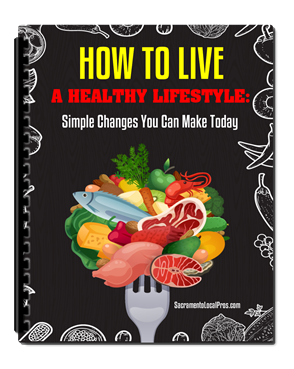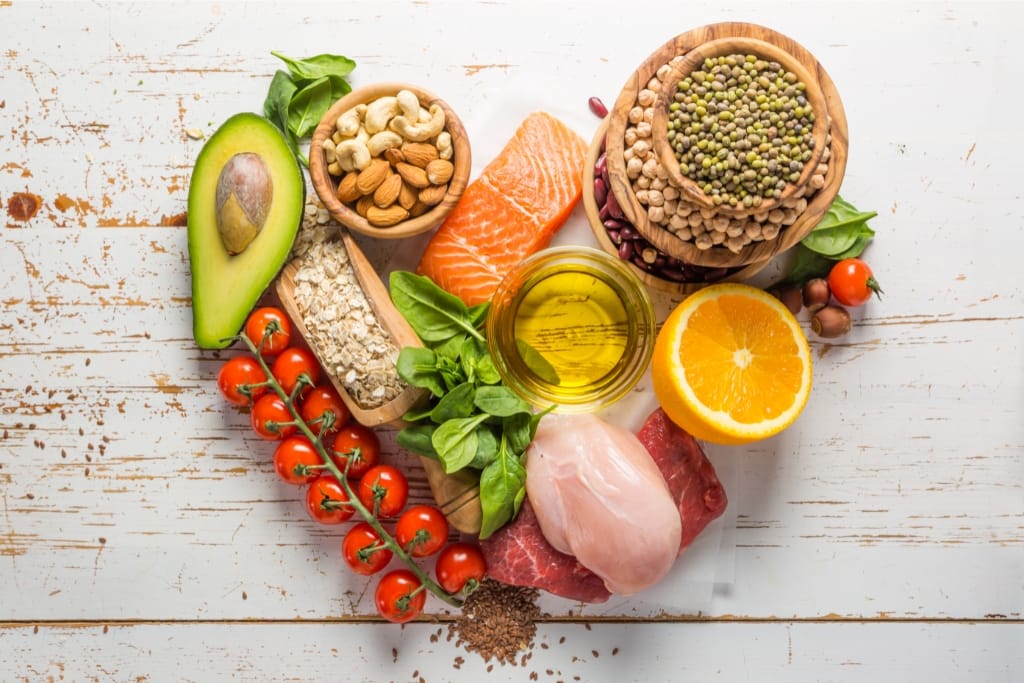Your gut health affects more than just digestion. The trillions of bacteria in your digestive system influence everything from your immune function to your mood, energy levels, and even your skin health.
When your gut microbiome is balanced, you feel better overall. You might experience bloating, fatigue, or frequent illness when it's out of whack.
The good news? You can improve your gut health through simple dietary changes.
Certain foods naturally support the growth of beneficial bacteria while reducing harmful microorganisms.
This article explores ten science-backed foods that can transform your digestive health and boost your overall well-being.
Why Gut Health Matters
Your gut microbiome is home to over 100 trillion microorganisms.
These tiny residents play crucial roles in breaking down food, producing vitamins, and protecting against harmful pathogens.
When beneficial bacteria outnumber the harmful ones, your digestive system runs smoothly.
Poor gut health has been linked to numerous health issues, including inflammatory bowel disease, allergies, depression, and even heart disease.
By incorporating gut-friendly foods into your diet, you're investing in your long-term health and vitality.
The Power Of Probiotic Foods
Probiotics are live beneficial bacteria that directly add to your gut's healthy population.
These foods have been fermented, creating an environment where good bacteria can thrive.
1)) Yogurt
Yogurt tops the list of probiotic powerhouses. Look for varieties labeled "contains live and active cultures" to ensure you're getting maximum benefits.
Greek yogurt is particularly rich in protein and probiotics, making it an excellent choice for breakfast or snacks.
The key is choosing plain yogurt without added sugars, which can feed harmful bacteria. Add fresh berries or a drizzle of honey for natural sweetness.
2)) Kefir
This fermented milk drink packs even more probiotics than yogurt. Kefir contains multiple strains of beneficial bacteria and yeast, creating a diverse microbiome boost.
It has a tangy, slightly effervescent taste that works well in smoothies or enjoyed on its own.
Water kefir offers a dairy-free alternative while still providing probiotic benefits. Both varieties are easy to make at home with starter cultures.
3)) Sauerkraut
Fermented cabbage might seem simple, but sauerkraut delivers powerful gut benefits.
The fermentation process creates beneficial bacteria while preserving the vegetable's nutrients.
Choose unpasteurized varieties from the refrigerated section, as pasteurization kills the beneficial bacteria.
Sauerkraut also provides fiber, vitamin C, and vitamin K. Add it to salads, sandwiches, or enjoy it as a side dish.
4)) Kimchi
This Korean fermented vegetable dish combines cabbage, radishes, and spices into a flavorful probiotic food.
Kimchi contains lactobacilli bacteria, which support digestive health and may help reduce inflammation.
The spicy, tangy flavor adds excitement to meals while delivering gut benefits.
Start with small amounts if you're not used to spicy foods.
Prebiotic Foods: Fuel For Good Bacteria
Prebiotics are non-digestible fibers that feed beneficial bacteria in your gut. These foods help existing good bacteria multiply and thrive.
5)) Garlic
Garlic contains inulin, a prebiotic fiber that promotes the growth of beneficial bacteria.
Raw garlic provides the most benefits, but cooked garlic still offers gut-supporting properties.
Beyond gut health, garlic provides antimicrobial compounds that may help reduce harmful bacteria.
Add minced garlic to dressings, sauces, or roasted vegetables.
6)) Onions
Like garlic, onions are rich in inulin and other prebiotic compounds. They also contain quercetin, an antioxidant that may help reduce inflammation in the digestive tract.
Both raw and cooked onions provide benefits. Raw onions in salads deliver maximum prebiotic content, while cooked onions are easier to digest for sensitive stomachs.
7)) Bananas
Bananas, especially when slightly green, contain resistant starch that acts as a prebiotic.
This type of starch resists digestion in the small intestine, reaching the colon where it feeds beneficial bacteria.
Ripe bananas provide natural sugars and potassium, while green bananas offer more resistant starch.
Both stages provide gut benefits.
Fiber-Rich Vegetables
Vegetables high in fiber support healthy digestion and provide nutrients that beneficial bacteria need to thrive.
8)) Asparagus
Asparagus contains inulin and other prebiotic fibers that promote gut health. It's also rich in glutathione, a powerful antioxidant that supports overall health.
Steam, roast, or grill asparagus for maximum nutrient retention. The tender tips contain the highest concentration of beneficial compounds.
9)) Artichokes
Jerusalem artichokes, also called sunchokes, are particularly rich in inulin. Regular artichokes also provide prebiotic benefits along with antioxidants and fiber.
Both varieties support digestive health while providing unique flavors and textures to meals.
Omega-3 Rich Foods
Omega-3 fatty acids support gut health by reducing inflammation and promoting the growth of beneficial bacteria.
10)) Fatty Fish
Salmon, mackerel, sardines, and other fatty fish provide omega-3 fatty acids that support gut health.
These healthy fats help reduce inflammation throughout the body, including in the digestive tract.
Aim for two servings of fatty fish per week to support both gut and heart health.
Choose wild-caught varieties when possible for optimal nutrient content.
How To Incorporate These Foods
Start slowly when adding new gut-healthy foods to your diet. Your digestive system needs time to adjust to increased fiber and probiotic intake.
Begin with small portions and gradually increase as your gut adapts.
Variety is key to building a diverse microbiome. Rotate different probiotic and prebiotic foods throughout the week rather than relying on just one or two options.
Consider timing as well.
Probiotic foods may work best when consumed on an empty stomach, allowing beneficial bacteria to reach your gut without competing with food for space and resources.
Supporting Your Gut Health Journey
Beyond specific foods, several lifestyle factors support gut health. Stay hydrated to help fiber move through your digestive system.
Manage stress, as chronic stress can disrupt gut bacteria balance. Get adequate sleep, as poor sleep affects gut health and overall immunity.
Limit processed foods, artificial sweeteners, and excessive sugar, which can feed harmful bacteria and disrupt your microbiome balance.
Building A Gut-Healthy Plate
Creating meals that support gut health doesn't require complicated recipes.
Start with a base of vegetables, add a source of beneficial bacteria like yogurt or fermented vegetables, and include prebiotic foods like garlic or onions.
A simple gut-healthy meal might include grilled salmon with roasted asparagus and a side of sauerkraut.
For breakfast, try Greek yogurt topped with sliced banana and a handful of berries.
Pro-Tip: Boost your gut health by incorporating a high-quality probiotic supplement into your daily routine.
Probiotics can enhance digestion, strengthen your immune system, and even improve mood and mental clarity by supporting the gut-brain connection.
Look for a supplement with diverse strains and a high CFU count to maximize the benefits for your overall health.
Conclusion
Improving your gut health through food is a journey, not a destination. Small, consistent changes create lasting benefits over time.
Start by adding one or two gut-healthy foods to your routine, then gradually expand your choices.
Listen to your body as you make changes. Some people may experience temporary digestive changes as their gut microbiome adjusts.
This is normal and usually resolves as your system adapts.
Gut health is connected to overall wellness.
By nourishing your digestive system with these ten powerful foods, you're supporting your immune system, mood, and long-term health.
Your gut and your entire body will thank you for the investment.
Download Our Free E-book!








